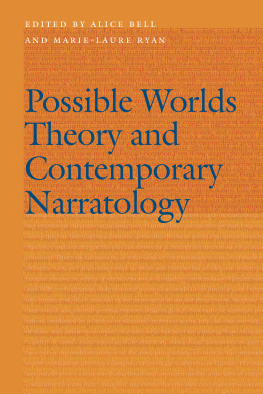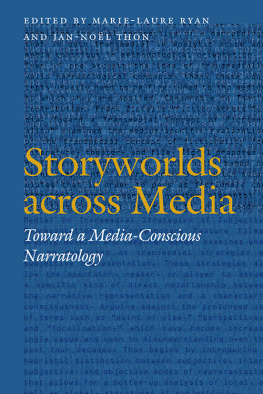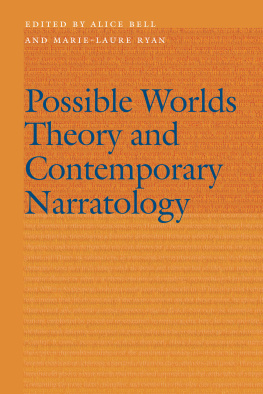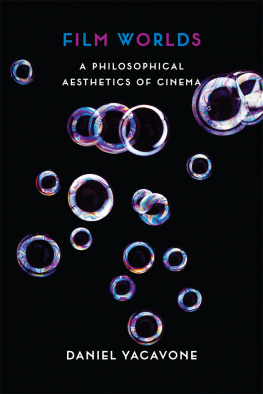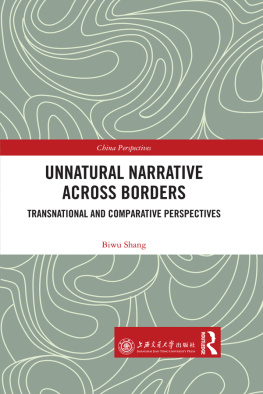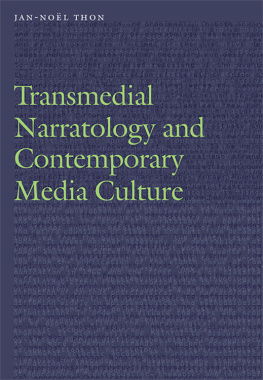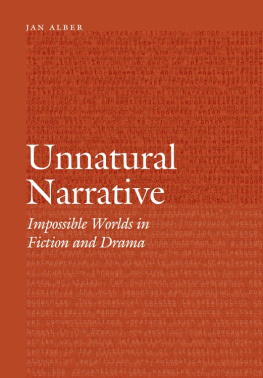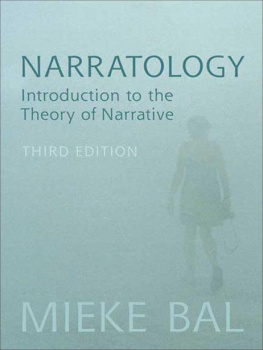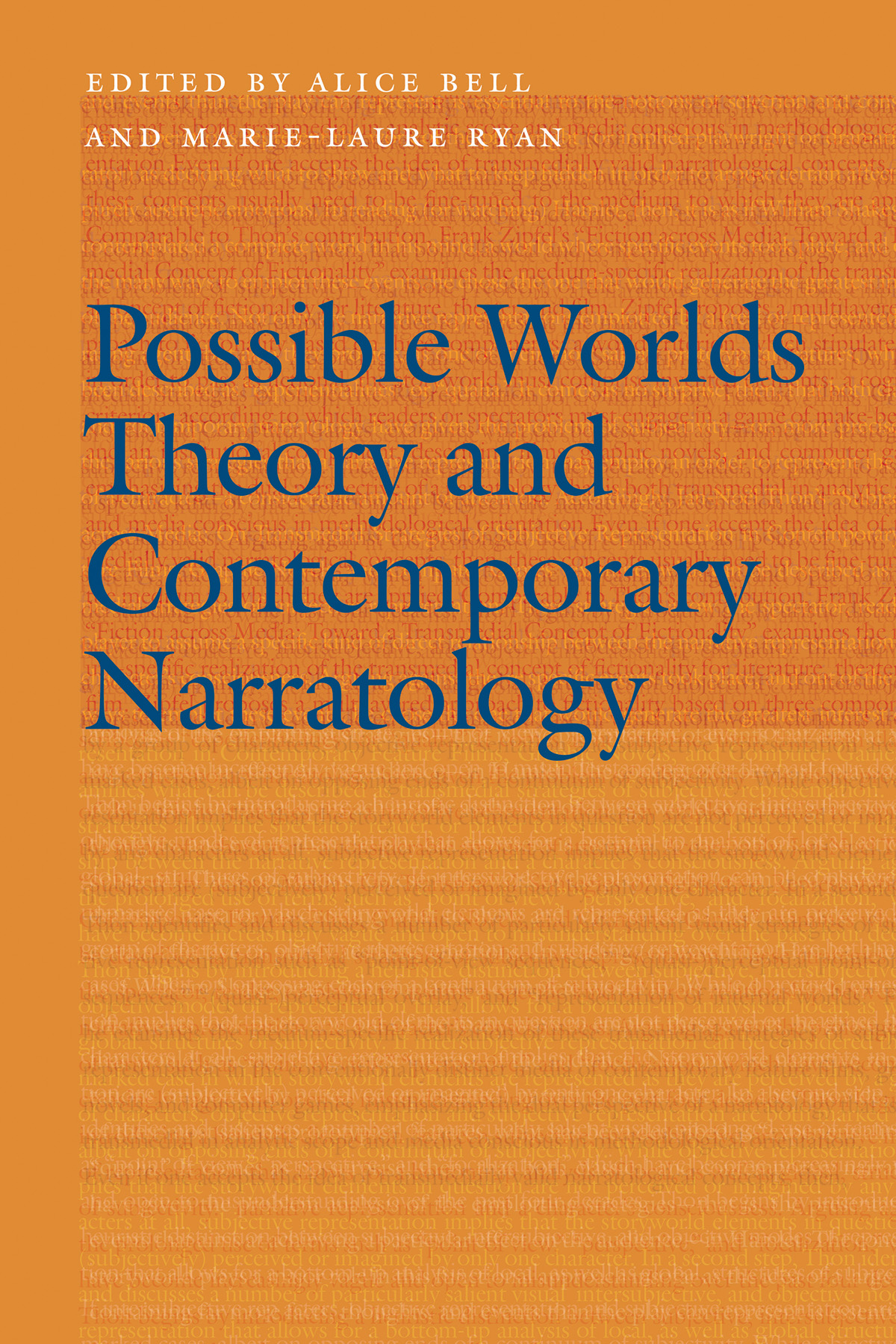
This book is a masterly summary of the progress made so far in the application of possible worlds theory to narratology and a valuable indicator of the many fascinating and thought-provoking directions in which research can be taken in the future. This book should be read by everyone with an interest in narrative theory.
Alan Palmer, author of Fictional Minds
This collection is likely to become a kind of one-stop shop for scholars working on a range of related problems at the forefront of current narrative research: fictionality, digital media, transfictionality and transmediality, post-postmodernism, the poetics of science fiction and fantasy, [and more].
Brian McHale, Distinguished Humanities Professor of English at Ohio State University
Frontiers of Narrative
Series Editor
Jesse E. Matz, Kenyon College
Possible Worlds Theory and Contemporary Narratology
Edited by Alice Bell and Marie-Laure Ryan
University of Nebraska Press | Lincoln and London
2019 by the Board of Regents of the University of Nebraska
Portions of chapter 1 were previously published in How to Reach Fictional Worlds, in Fiction and Art: Explorations in Contemporary Theory, ed. Ananta Ch. Suka (London: Bloomsbury Academic, an imprint of Bloomsbury Publishing Plc., 2015), 21927. Used with permission.
An earlier version of chapter 7 was published as Zeit und Possible Worlds Theory: Eskapismus in mgliche Zeiten in Jack Londons The Star Rover, in Zeiten erzhlen: AnstzeAspekteAnalysen, ed. Antonius Weixler and Lukas Werner (Berlin: de Gruyter, 2015), 5377. Used with permission.
Cover designed by University of Nebraska Press.
All rights reserved
Library of Congress Cataloging-in-Publication Data
Names: Bell, Alice, 1979 editor. | Ryan, Marie-Laure, 1946 editor. Title: Possible worlds theory and contemporary narratology / edited by Alice Bell and Marie-Laure Ryan. Description: Lincoln: University of Nebraska Press, [2019] | Series: Frontiers of narrative | Includes bibliographical references and index.
Identifiers: LCCN 2018011949
ISBN 9780803294998 (cloth: alk. paper)
ISBN 9781496213051 (epub)
ISBN 9781496213068 (mobi)
ISBN 9781496213075 (pdf)
Subjects: LCSH : Fantasy fictionHistory and criticism. | Narration (Rhetoric)
Classification: LCC PN 3435 . P 67 2019 | DDC 809.38766dc23
LC record available at https://lccn.loc.gov/2018011949
The publisher does not have any control over and does not assume any responsibility for author or third-party websites or their content.
We dedicate this book to Lubomr Doleel (October 3, 1922January 28, 2017)
Contents
Marie-Laure Ryan and Alice Bell
Lubomr Doleel
Marie-Laure Ryan
Marina Grishakova
Marco Caracciolo
W. Michelle Wang
Jan Alber
Christoph Bartsch
Thomas L. Martin
Mattison Schuknecht
Alice Bell
Franoise Lavocat
Daniel Punday
Thomas G. Pavel
Possible Worlds Theory Revisited
Marie-Laure Ryan and Alice Bell
When PW theory made its first forays into literary theory in the mid-1970s, literary studies were almost completely dominated by a conception of language that the philosopher Jaakko Hintikka labeled language as the universal medium: By the conception of language as the universal medium, I mean the idea that we cannot in the last analysis escape our language and as it were look at it and its logic from the outside. As a consequence, the semantics of our language is inexpressible, and cannot be theorized about in language (1988, 53). As representatives of language as the universal medium, Hintikka had in mind logicians who recognize the existence of only one world, such as Gottlob Frege, early Bertrand Russell, Ludwig Wittgenstein, and Willard Van Orman Quine, but he also mentioned Heidegger, who conceived language not in logical terms but in poetic terms as the sacred guardian of Being. Yet Hintikka was clearly referring to the logicians when he further wrote: One of the most important consequences of the view of language as universal medium is the uniqueness of our language and of its interpretation. All that language is good for in this view is to enable us to talk about this world. We cannot use language to talk about other possible worlds (54).
As Thomas Martin (2004) has shown, the implications of the idea of language as universal medium reach far beyond the brand of logic represented by one-world philosophers: they also underlie the structuralist belief, further developed by New Criticism, poststructuralism, and deconstruction (schools to which we will globally refer as textualist), in the centrality of language for human cognition. Not only is there only one world, but this world is made of language, and we cannot escape from what Fredric Jameson (1975) called the prison-house of language. Crucial to the universal medium view of language is Ferdinand de Saussures claim that the meaning of words is not determined by their relations to objects in the world but rather by their relations to the other elements of the system, so that in language there are only differences without positive terms (1966, 120). The radical interpretation of language as the universal medium has far-reaching implications for literary studies. If semantics cannot be theorized in language, this means that the meaning of literary texts cannot be paraphrased and that interpretation is necessarily a betrayal. If the value of words is entirely determined by their neighbors in the system, this means that literary texts cannot be about things in the world (or things in an imaginary world); they must be about language itself. The only mode of reading respectful of literary meaning consists of tracing the play of language, a play consisting of the internal relations between the elements of the textual system. Finally, if what we regard as reality is in fact a construct of language, the question of truth and reference becomes void. No distinction can be made between truth-seeking and fictional texts, for, as Roland Barthes claimed, The fact can only have a linguistic existence (1981, 1617).
Hintikkas alternative to the conception of language as universal medium is language as calculus. According to this view, which takes the term calculus in a broader sense than differential or integral calculus, you can so to speak stop your language and step off. In less metaphoric terms, you can discuss the semantics of your language and even vary systematically its interpretation. The term language as calculus is not calculated to indicate that in this view language would be a meaningless jeu de caractresthis is not the idea at all. Rather, the operative word highlights the thesis that language is freely re-interpretable like a calculus (1988, 54). Hintikkas characterization rests on two central points: (1) far from being prisoners of language, we can look at it from the outside and analyze it through a metalanguage (which can be language itself); (2) we can interpret statements made in language with respect to various fields of reference or universes of discourse. If we call these fields worlds, point 2 presupposes the existence of multiple worlds with respect to which the truth of propositions can be evaluated. A given propositionsuch as dragons existmay thus be false in one world and true in another.
For literary and narrative theory, the rejection of the conception of language as universal medium in favor of language as calculus is nothing less than a paradigm change, though the doctrine of language as universal medium retained its hegemony for quite some time after the first steps of PW theory into literary territory. The new paradigm means that the question of fiction, long taken for granted, suddenly becomes worthy of attention. It also means the rehabilitation of the question of truth and reference with respect to fiction, a question that was either undecidable, heretical, or too easily resolved in a one-world model. If the one world is made of language (as in poststructuralism), we cannot get out of it, and the question of truth or falsity becomes irrelevant, since it takes an external point of view to evaluate propositions. On the other hand, if the one world is a language-independent reality, and no other world exists, all propositions about imaginary entities become automatically false or indeterminate, since they do not refer to anything. In a many-worlds ontology, fictional texts can be associated with worlds, these worlds can be imagined on the basis of all the propositions presented as true by the text, and it is possible to distinguish true statements about the members of particular fictional worlds, such as Emma Bovary was a dissatisfied country doctors wife, from false ones, such as Emma Bovary was a paragon of marital fidelity.
Next page
